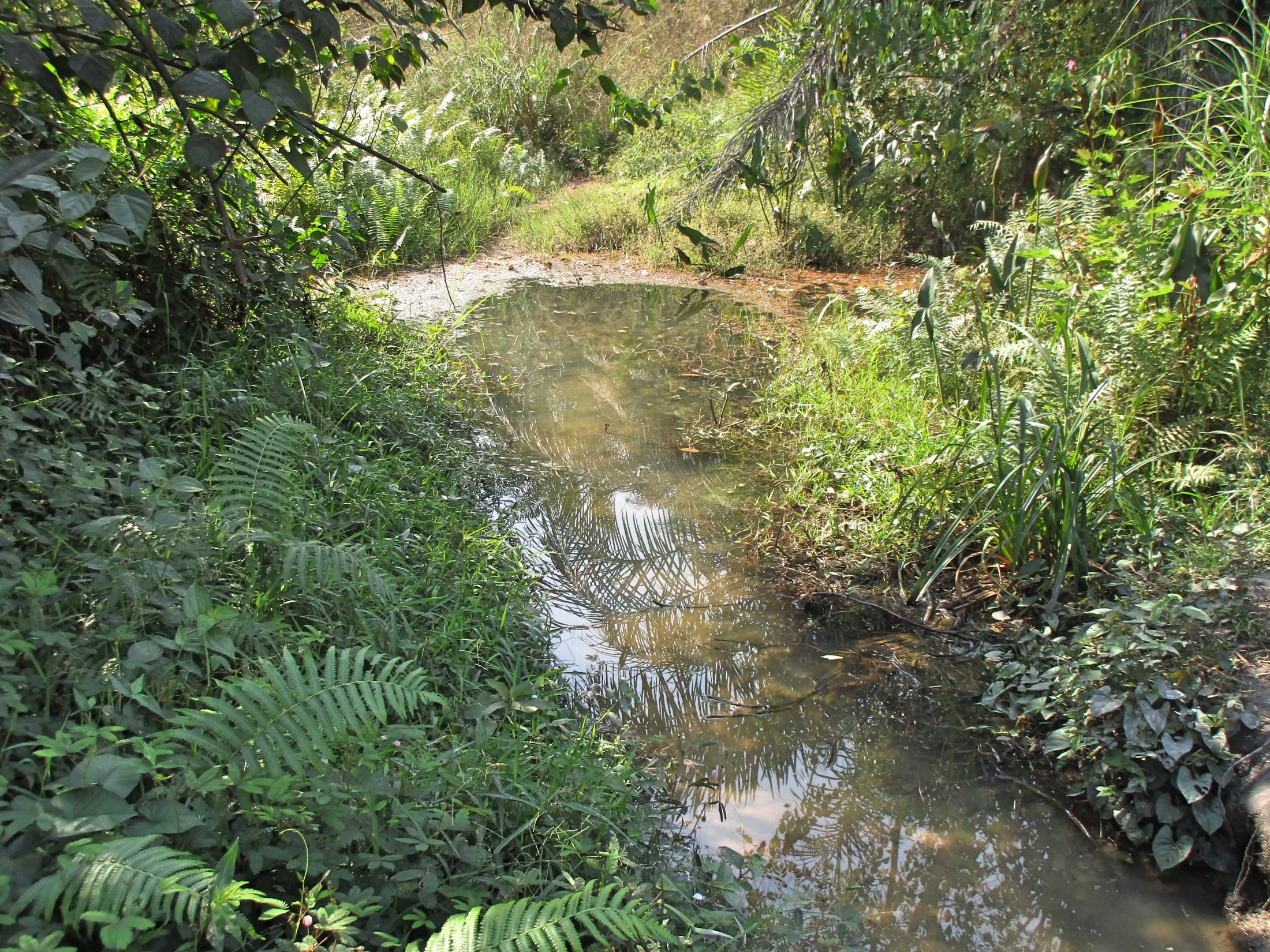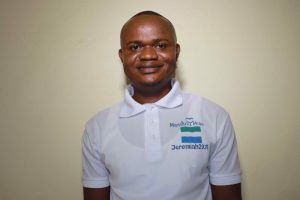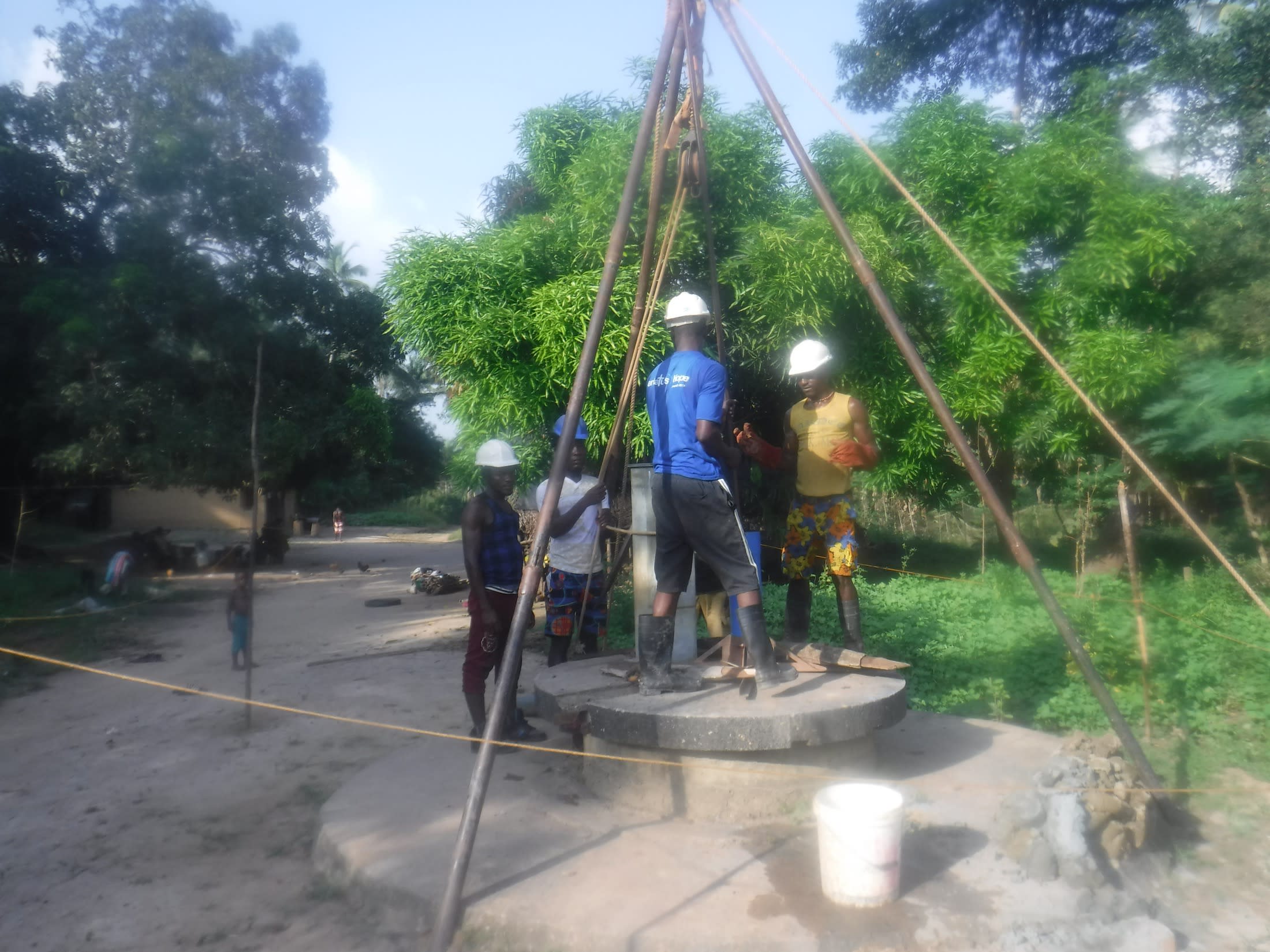The well in Mathanko only provides water during the rainiest season of the year, which goes from August to September. From October through July, the only source available to the 104 people who live here is the swamp.
Not only is the swamp a long 30-minute walk (about three miles) from the community, but it is also rife with contamination. The water is yellow and cloudy, leaving stains on clothes when it is used for laundering. And because the swamp is so far away, people elect to do their laundry and bathe at the swamp rather than bring containers home, washing soap and dirt into the water they later drink.
As a result of drinking the water, the community health post reports multiple cases of typhoid fever and chronic diarrhea among Mathanko's people. With the long walk and not a single handwashing point in the entire community, it's no wonder that people suffer from water-related illnesses.

And the contaminated water is not the swamp's only danger—on the way to the swamp or while fetching water, water-fetchers must sometimes square off with venomous snakes and scorpions, dropping their containers and fleeing so as to avoid a deadly bite or sting.
"Access to water is difficult in this village," said 25-year-old fishmonger and new mother Fatmata Kalokoh.

"I am a lactating mother. I need enough water to clean up my baby and prepare food. It is exceedingly difficult to fetch water from the swamp because of the long distance. This is one of the reasons why I could not get sufficient water at my house to use."
The struggle to fetch water severely disrupts all the tasks Fatmata needs to accomplish each day. "I normally miss my morning prayer because I need to fetch water. I need enough water in the morning to wash my dishes and wash the clothes of my baby before going out to sell fish. My husband spends [the] complete day at the sea fishing. He needs water [and] food to eat and water to bathe when he returns to the house. It would be very frustrating to him when he could not get food to eat early and water to bathe early. The shortage in water causes the delay."
15-year-old Abdul K. (in the photo below carrying water) fetches water both before and after his school day. This is on top of the miles-long walk he must make to school Monday through Friday. Together, all these trips and tasks leave him drained. But his household needs water for washing dishes, clothes, and bodies, and Abdul doesn't want to leave the task to his mother.

"I remember when my mother gave birth to my younger sister," Abdul said. "She struggled to have enough clean water to use. It is difficult to fetch water from the swamp to wash clothes because of [the] long distance, and it is a dangerous area. I must carry them to the swamp to wash them.
"I must go to the swamp together with other people because it is not safe to be at the swamp area alone. I trek to attend school in Petifu Junction every day from Monday to Friday. Sometimes, I carry a bucket to school to fetch clean drinking water from our school well to my house. It is not easy to bring water from school because I would be exhausted after school."
A reliable source of water will significantly reduce the amount of time Mathonko's people spend accomplishing everyday things. With water closeby, Fatmata and Abdul will have more time and energy to use for more productive things than simply keeping their households afloat.
Here’s what we’re going to do about it:
Well Rehabilitation
The well marked for this overhaul is dry for a few months every year and needs major work to supply adequate, clean water to the community year round. The pump will be removed, and a hand auger will be lowered inside and powered by a drill team. This hand auger will allow the team to drill several meters deeper to hit a sufficient water column that will ensure the well supplies water throughout all seasons.
As the team drills, casing will be installed, transforming the bottom of this hand-dug well into a borehole. PVC piping will connect this lower system directly to the pump, a construction that we know will also improve the quality of water.
Once this plan is implemented, everyone within the community will have access to safe drinking water in both quality and quantity, even through the dry months.
Hygiene and Sanitation Training
There will be hygiene and sanitation training sessions offered for three days in a row.
After our visit, the hygiene and sanitation trainer decided it would be best to teach community members how to build a tippy tap (a hand-washing station built with a jerrycan, string, and sticks). They will use these tippy taps for handwashing demonstrations, and will also teach about other tools like dish racks and the importance of properly penning in animals.
These trainings will also strengthen the water user committee that manages and maintains this well. They enforce proper behavior and report to us whenever they need our help solving a serious problem, like a pump breakdown.

 Borehole Well and Hand Pump
Borehole Well and Hand Pump


















